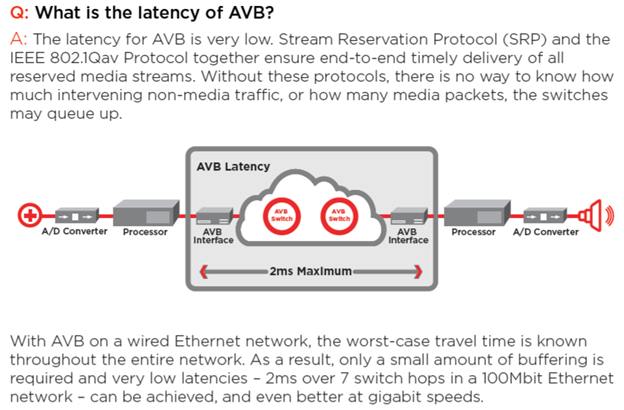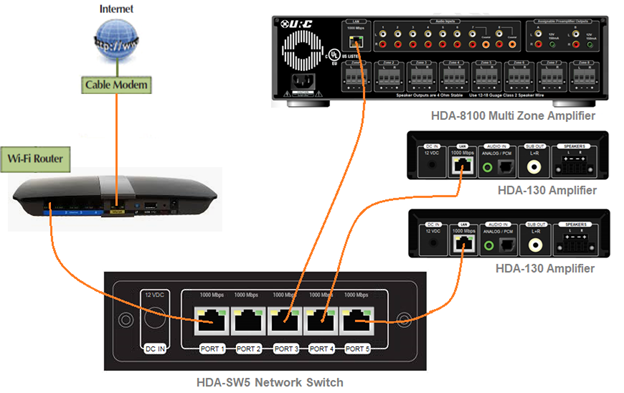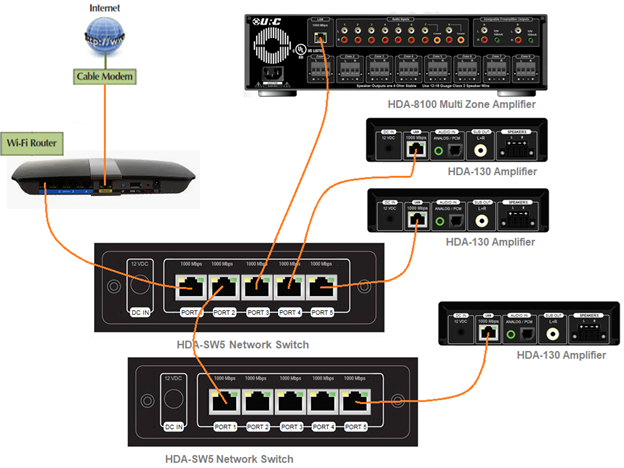URC HDA devices and software provide countless options to configure and optimize audio settings to achieve performance and flexibility for almost any application.
The following article details a few factors to consider when determining what AVB switch should be used in an HDA system and if a third-party HDA switch should be considered. In addition, it shows two (2) HDA-SW5 AVB switch and HDA equipment connection options.
1. When sharing AVB signals, no more than seven (7) AVB switches should be used in an HDA system. By using no more than seven AVB switches, the guaranteed audio latency between zone will never exceed 2 milliseconds, which is not perceivable by the human ear.

2. When using an AVB switch like the HDA-SW5, the switches must be connected in either a daisy-chain or a star topology.
Shown below are supported AVB Switch Installation Examples:
Installation Example #1

Installation Example #2

3. Because of the supported HDA-SW5 connection examples, a maximum of 23 HDA chassis can be used in a system with seven (7) HDA-SW5 units. (Note the reference to 23 HDA “chassis” – not 23 HDA “zones”).
4. If an HDA system requires the use of more than 23 HDA “chassis”, the installer will need to use a third-party AVB switch in the system.
URC has tested the “Luminex Gigacore” line of network switches with HDA devices and they are fully compatible with each other. Luminex switches can also be used in conjunction with HDA-SW5 Switches in the same installation.
More information on Luminex Gigacore switches can be found here.
Additional Information & Resources:
Please refer to this article for additional details on using the Luminex Gigacore 10 AVB switch.
To learn more about HDA products and programming, please see the HDA Programmers Guide or the Accelerator 3 online Programming Guide.
